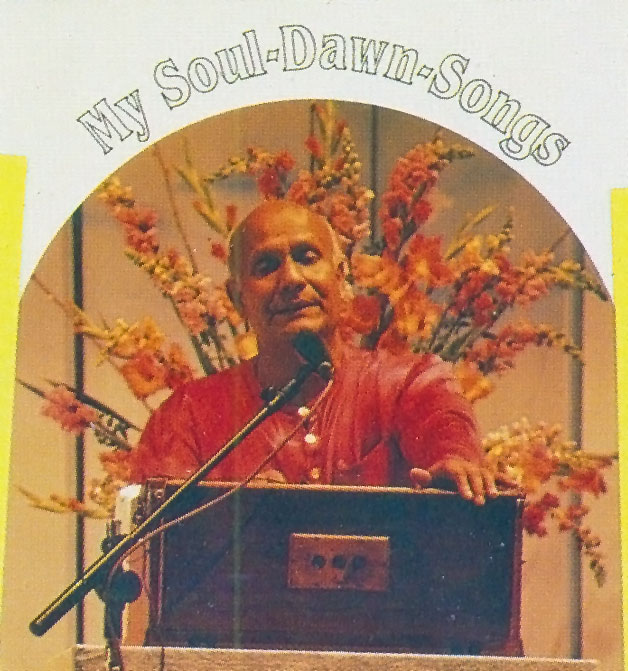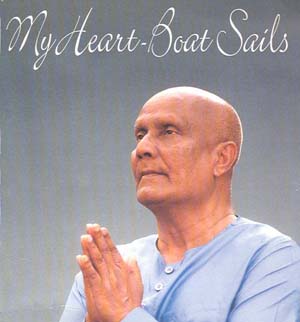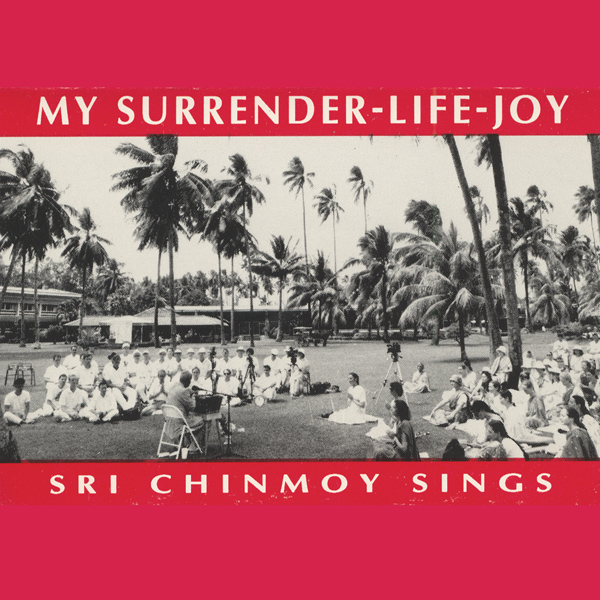To those of us who prefer things to be scripted and rehearsed — even though life itself shies away from that goal — the idea of sitting before a musical instrument and improvising in the moment is almost beyond comprehension. Normally, composers spend long hours carefully framing their inspiration in a written score, then revising it until it is perfect. By recording their creation, they release it, in a sense, so that it can be performed by others.
An improvisor discards this entire written process. The roles of creator and performer inhabit him simultaneously. What he feels, he expresses, and where the conventions of musical notation are the stock in trade of the composer, the improvisor obeys no laws but his own inner guide.
Contemporary musician Sri Chinmoy has composed some 18,000 short songs over the course of the last half century. In concert, he performs these songs on a range of instruments, such as harmonium, esraj, cello and flute. But at the close of each concert, he invariably moves to a Yamaha keyboard with Kurtzweil sound module and plays extemporaneously for ten or fifteen minutes.
Why forsake his written compositions? “It is creation for creation’s sake,” says Sri Chinmoy. He goes on, “There is no set method, there is no hard and fast rule that I have to do this, I have to do that. A child uses his heart. He does everything spontaneously. So in my case also, I try to do everything spontaneously, like a child. I do not use my mind. I see myself as a child playing in his own heart-garden. In the garden, there are many beautiful plants and I play hide-and-seek. I move around; I play with the leaves and plants and flowers. I enter into my heart-garden and I enjoy Nature’s beauty deep within me.”
Some have likened improvisation to prayer. In effect, the musician leaves everything in the hands of God. His only task is to make himself as receptive as possible so that hitherto unknown rhythms and harmonies can reveal themselves through him. The improvisor listens and then responds. Crossing the threshold of the known, he plumbs the depths of silence and then he gives the unknown a sound-form.
Whether or not the audience enjoys this music is dependent, perhaps, on the extent to which they are prepared to follow the improvisor in his sound-journey.
Lee Underwood, a new age reviewer and free-lance writer, described one experience of listening to Sri Chinmoy’s extemporaneous performance on the pipe organ of the Sydney Opera House, a 37-tonne colossus with ten thousand pipes. Underwood writes,
“Heart-Power-Victory is a live recording of a concert guru Sri Chinmoy performed at Australia’s Sydney Opera House in November, 1987. Playing one of the world’s largest pipe organs, Chinmoy improvises a divinely inspired music that shatters standard academic conventions and raises the soul to the heavens.
“To be sure, orthodox and mentally ‘busy’ listeners will find themselves nonplussed at Chinmoy’s leaping, jabbing, fluttering, poking approach to the keyboards. However, adventurous listeners who are inwardly quiet and fully-present while listening will discover the music of genius.
“Through dissonance and external speed, Chinmoy creates in the receptive listener a profound internal sense of ecstatic peacefulness. As he dashes from cluster to cluster, obliterating western harmonic relationships, he pours forth a veritable river of spontaneous enharmonic joy.
“Chinmoy’s Heart-Power-Victory improvisations, born in the deep quietude of meditation, manifest extraordinary spiritual power and intensity — accessible to all who have ears to hear in new ways, to all who have the courage to explore previously uncharted worlds within.”
Article by Vidagdha Bennett
Related
- My Europe-Aspiration-Flames Blossom – Sri Chinmoy playing the Pipe Organ at seven locations



